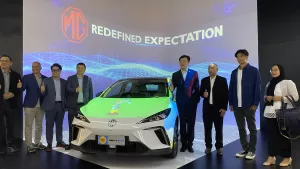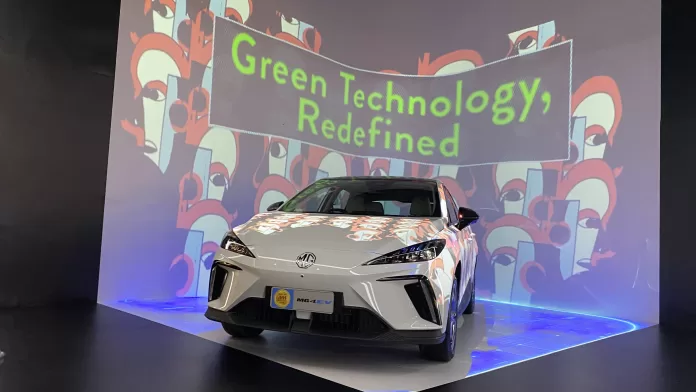MG Motor Indonesia getting more serious to join the EV competition in Indonesia. After presenting electric cars several times, now the British car manufacturer which is controlled by China will invest large amounts in assembling electric cars in Cikarang, West Java, Indonesia.
No joke, two MG Motor Indonesia electric cars, MG ZS EV and MG 4 EV, will be assembled in a factory also owned by Wuling Motors. Previously the MG ZS EV and MG 4 EV were imported intact under the CBU scheme from Thailand.
“Today is a very important day for MG in Indonesia, which will be a historical record for MG’s successful journey in Indonesia,” said Arief Syarifudin, Marketing and PR Director of MG, in South Jakarta, Wednesday (15/11/2023) .
“We inform you that two of our electric vehicles will be produced locally, starting in February (2024) for the ZS EV, and March for the MG4 EV. “Delivery will be made one month after the production process,” he continued.
MG will use SAIC facilities in Cikarang, West Java, where another Chinese manufacturer, Wuling, already carries out assembly there. However, Arief confirmed that the MG car production line is different, even though it is in the same location.

For your information, SAIC invested 600 million dollars or the equivalent of IDR 10 trillion to build factory facilities in Indonesia. Of the total funds disbursed, MG received IDR 4 trillion so that it could produce all lines sold in Indonesia.
“So if we talk about the SAIC facility, it’s 600 million dollars, so that’s almost IDR 10 trillion. Our production target is 100 thousand vehicles per year, this is in stages. “In the future, 60 percent of the vehicles will be electric, the rest will be ICE,” said Arief.
By assembling electric vehicles locally, Arief ensures that the products leaving the factory will meet the TKDN requirements of at least 40 percent. This is to pursue incentives in the form of a 10 percent VAT discount from the government.
“When we talk about local content and so on. Our target is 40 percent to be fulfilled. “In 2027, according to what the government (TKDN) wants above 60 percent, we will go there,” he said.





